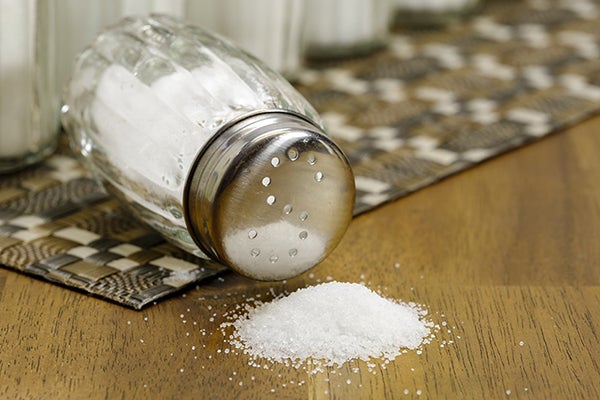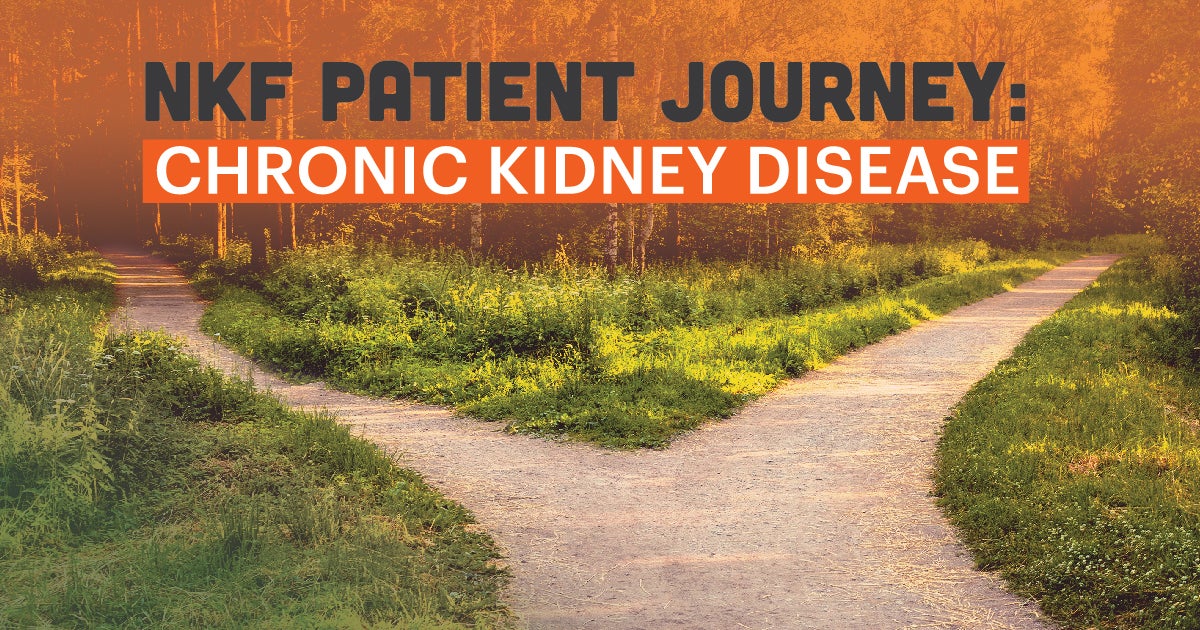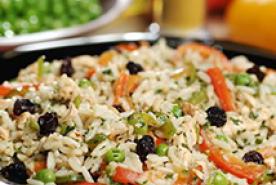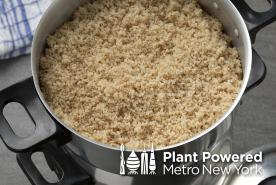Diseases and conditions Diet and nutrition Cardiovascular disease Vitamins, nutrients, minerals, and supplements High blood pressure Sodium
October 08, 2019
Here's how to eat less sodium or salt.
When it comes to dietary sodium, less is certainly best, yet Americans today consume 50% more than the recommended daily quantities of sodium. Diets high in sodium increase blood pressure levels. High blood pressure damages the kidneys over time and is a leading cause of kidney failure.
To help Americans reduce salt intake to the ideal one teaspoon per day, the National Kidney Foundation and Council of Renal Nutrition member Linda Ulrich offer 10 tips to reduce sodium in your diet.
1. Choose Fresh Meat
Use fresh, rather than packaged, meats. Fresh cuts of beef, chicken or pork contain natural sodium, but the content is still much less than the hidden extra sodium added during processing in products like bacon or ham. If a food item keeps well in the fridge for days or weeks, that's a tip off that the sodium content is too high.
Join the NKF Blog Newsletter
Get inspirational stories and kidney disease resources delivered to your inbox every month. You'll gain practical insights and expert advice to help you better understand and manage your kidney health no matter where you are on your kidney journey. Subscribe today.
4. Always Check Food Labels
Begin reading food labels as a matter of course. Sodium content is always listed on the label. Sometimes the high sugar content in a product like apple pie can mask the high sodium content so it's important to check every label for sodium content.
6. Spice Up Your Food
Select spices or seasonings that do not list sodium on their labels, i.e. choose garlic powder over garlic salt.
7. Research Before Dining Out
Before dining out, do your research. Visit the restaurant's website which should list the sodium content of various dishes served there. Alternatively, when you're at the restaurant and ready to order, you can request that the dish be served without salt.



















